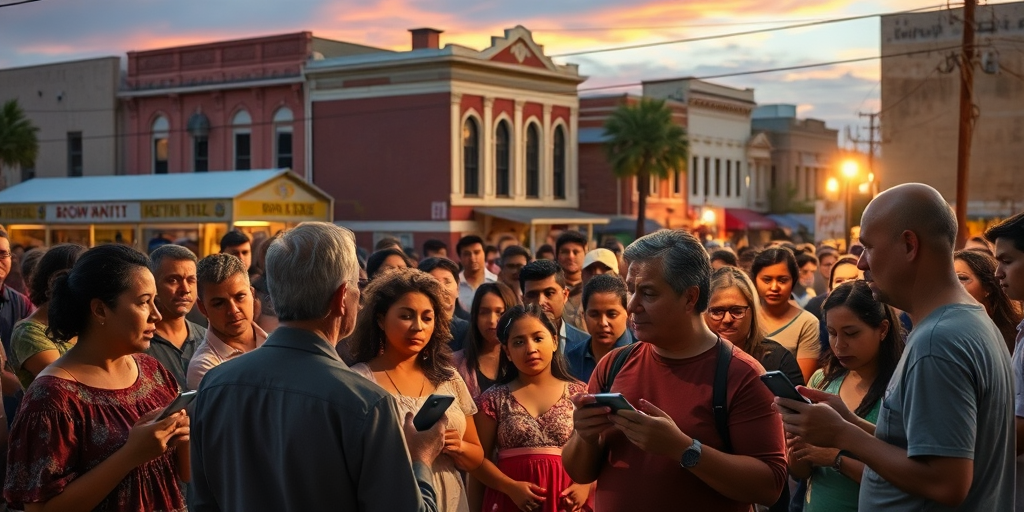Brownsville ISD Seeks Public Opinion on School Cell Phone Ban
As schools in the Rio Grande Valley brace for the start of a new academic year, a significant decision is on the horizon for Brownsville Independent School District (BISD). The district is actively seeking feedback from the community regarding the implementation of a new state law that addresses the use of electronic devices, such as cell phones, smartwatches, and tablets, within school premises. This initiative invites Valley residents to voice their opinions and help shape the educational experience in South Texas.
Understanding the Law
The need for community input stems from the recent passage of Texas House Bill 1481, which mandates restrictions on personal technology devices in classrooms. Passed unanimously in June, the law aims to reduce distractions during school hours by either banning these devices outright or requiring them to be stored away. BISD Superintendent Jesus Chavez emphasized the urgency of this decision due to the upcoming academic calendar, stating, “We need to move quickly on this because we’re starting school in a few weeks.”
The Process of Gathering Public Input
To facilitate this decision-making process, BISD has launched an online survey open to parents, educators, and students, allowing them to share their thoughts on how to best implement the law. Community feedback will be accepted until July 21, 2025. Superintendent Chavez reiterated the significance of engaging the community, saying, “The perspectives of our community will play a crucial role in this implementation process, ensuring that the chosen path aligns with our educational goals and community values.”
For those interested in participating, the survey can be accessed via the district’s website. BISD encourages all stakeholders to contribute their insights to help develop a policy that reflects the needs and concerns of Valley residents.
Local Reactions and Perspectives
The proposed ban has sparked diverse reactions among community members. While some parents welcome the regulation as a way to minimize distractions in educational settings, others express concerns about the ability to communicate with their children during emergencies. Theresa Gomez, a mother of two BISD students, shared her view: “I understand the need for education-focused environments, but I worry about urgent situations where reaching my kids quickly is necessary.”
On the other hand, educators have generally supported the initiative, citing the need for uninterrupted learning environments. David Rodriguez, a high school teacher at BISD, commented, “As teachers, we’ve seen firsthand how technology can both aid and obstruct learning. Implementing strategic policies can help us foster a more conducive academic atmosphere.”
Implications for the Rio Grande Valley
The outcome of BISD’s decision may serve as a benchmark for other districts within the Rio Grande Valley, as similar policies could be adopted in the future. The region, known for its dynamic mix of cultures and educational institutions, may see broader discussions about the integration of technology in classrooms. The initiative also connects with ongoing efforts to enhance local education standards and student engagement.
Additionally, the initiative aligns with broader community concerns about digital wellness and the role of technology in youth development. The RGV has consistently been a hub for educational discourse, and this decision may steer future policies in not just South Texas but potentially across state lines.
Looking Ahead
As the survey deadline approaches, BISD officials remain committed to transparent and inclusive decision-making processes. Subsequent policies will be developed based on the survey results, with an emphasis on equipping students with the necessary skills and environment for academic success.
The resolution of this issue will be closely monitored not just by educators and parents, but also by policymakers and community leaders throughout the Rio Grande Valley. The success of the policy is expected to depend heavily on its execution, the comprehensive input of community stakeholders, and the ability of schools to adapt to these changes effectively.
For further information or to participate in the survey, Valley residents can visit the BISD website. Stay tuned to RGV news outlets for updates on this developing story and its implications for the community.
This decision will undoubtedly have a lasting impact on the educational landscape. By allowing local voices to help shape these policies, BISD ensures that the district continues to serve as a pillar of community interest and educational excellence in the Valley.







